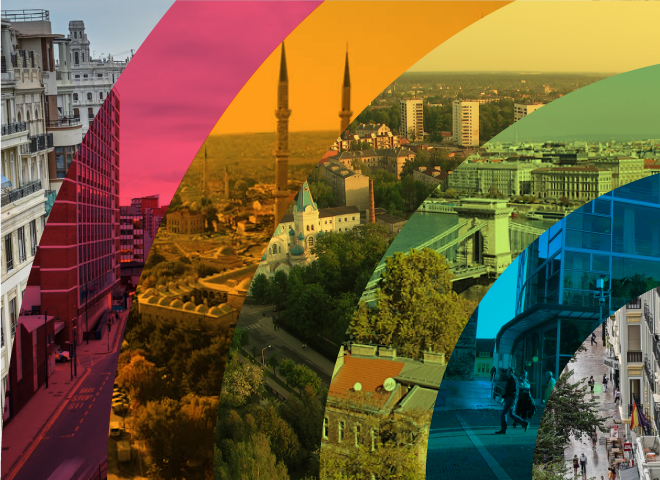
WHAT: WELLBASED is a European project funded under the HORIZON 2020 programme of the European Commission that ran from 2021-2025. The international team designed, implemented and evaluated a comprehensive urban programme to significantly reduce energy poverty and its effects on the citizens health and wellbeing, built on evidence-based approaches in six pilot cities that represent not only different urban realities but also a diverse range of welfare and healthcare models.
WHY: Energy poverty is becoming a main challenge of the European welfare systems and beyond, abounding on the inequalities derived from living conditions and social determinants, with a direct and negative impact on health and wellbeing, mainly in urban contexts. Health problems attributable to energy poverty include respiratory diseases, heart attacks, stroke and mental disorders (stress, anxiety, depression), but also acute health issues, such as hypothermia, injuries or influenza. The complex nature of this recently identified phenomenon requires a comprehensive analysis of the problem and its solution from a multidimensional approach, which should involve environmental, political, social, regulatory and psychological issues, thus involving other Social Determinants of Health and health inequalities. Urban policies and initiatives might respond very efficiently to energy poverty and their effects on the citizens wellbeing and health, by providing evidence-based interventions covering different angles of the challenges, including complementary actions covering individual (behavioural) but also social-political actions (regulations, urban planning) that include health in all policies.
HOW: Based on the socioecological model, we tested intervention schemes addressing energy poverty in 6 different pilot cities in Europe: Valencia (Spain), Heerlen (The Netherlands), Leeds (UK), Edirne (Turkey), Obuda (Hungary) and Jelgava (Latvia). The city of Skopje (North Macedonia) joined the pilots as an observer.
RESULTS: The results of the WELLBASED 18-months study are not a big bang, but they tell us a lot about the health and wellbeing impacts of home energy interventions. The international WELLBASED team found people across all six cities whose physical and mental health was affected by the lack of access to energy. This included health conditions being exacerbated by energy poverty, often associated with poor living environments, poor air quality, unbearable summer or winter temperatures and exposure to damp, cold or overheating. 👉 See all outcomes in detail on the “Publications” page.
Video interviews from 2024 (Credits: Miriam Eisermann, Energy Cities)

